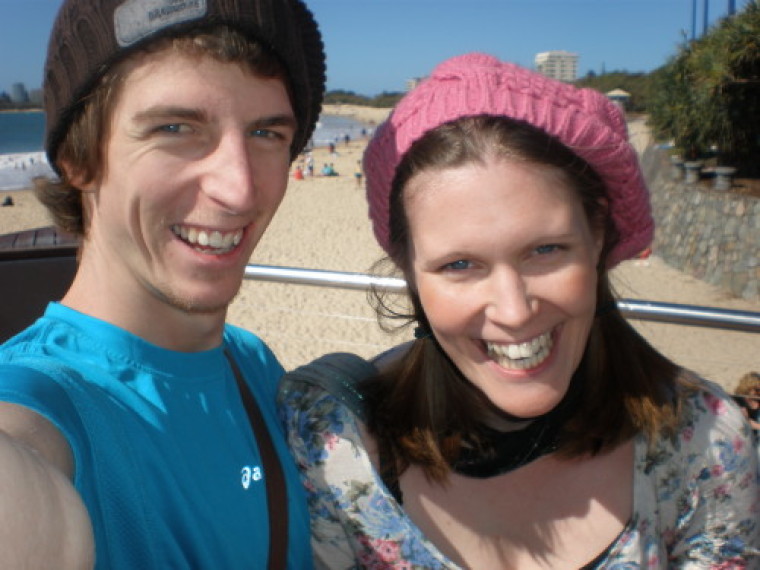
She talked about sin to the young crowd of children. Have you every lied, she asked? Argued with your parents? Stolen lollies? Fought with your sibling? Most children agreed.
All those acts are sin she explained to the children. 'Sin, sin, and sin,' she exclaimed.
I looked around at the children. They were fidgeting, yet absorbing the lady's lesson. I wondered how they felt about being told that they sin daily, if not hourly.
I went away feeling a bit uneasy.
I questioned whether it was accurate to assert that such acts are truly sinful for such young children (by young I mean under about Grade Two). Is it not normal childhood development to fight with parents and siblings and tell a few lies, as they are discovering what right and wrong is?
If so, what are the consequences of teaching a child certain actions are sinful if the Bible, where we get our knowledge from, in my view, perhaps would not suggest that? Well, what is sin? How do we teach children about it?
What is sin for young children?
I dislike the idea of telling young children that actions such as arguing with your parents is sinful. But truth is not about what I think it ought to be. Truth is what the Bible tells us is true.
All people are sinful. The Bible seems to have various terms for sin such as ignorance, error, rebellion and many others. Sin could be succinctly defined as not conforming to the way God expects us to act, be that deliberately or passively. But, how God expects us to act has at least some ambiguity (i.e. would God expect a baby to pray or a illiterate person to have quite times reading the Bible?).
Moral development in Children
Perhaps labelling all lying, arguing and fighting as sinful is a bit too stringent.
This point I'm making became obvious to me when I looked at a few of the main theories on child moral development.
For example according to Piaget, preschoolers are in a stage he describes as Morality of Constraint. In this stage, children tend to think of right and wrong in black and white terms. An act is always right or always wrong and people are always bad or always good. Hopefully our children don't grow up understanding they are always sinners, and therefore be too bad for God.
A child in the Morality of Constraint stage has cognitive difficulty in taking another person's perspective or thinking how another person feels. Typically at this stage the only perspective a child comprehends is their own. They can only understand why it is bad for people to sin against themselves, but find it hard to understand sinning against God.
Furthermore, theorists coined a term 'relativistic hedonism' to describe how young children are able to take from others without feeling guilt because they think they need it. Is this a part of the survival instinct God designed them with? Or if they literally can not understand taking something off another person is wrong are they rebelling against God?
The young child's immature concepts of cause/effect relationships may link up with their natural egocentrism for sometimes emotionally unhelpful feelings of guilt. This is exemplified when young children blame themselves for their parents' divorce.
Developmental or Sinful
I wonder if labelling an action as sin, when it is simply a developmentally appropriate action, might evoke a nagging sense of guilt in children to think of their normal behaviours as sin?
On a personal level, from what I learnt at a Christian school about sin resulted in me being a child who always felt guilty. I would earnestly pray every night that God would forgive me of my many, many sins.
My young mind would philosophise that because I sinned so much, was I really a sincere Christian? Sin tormented me. I would even set up 'punishments' for myself because I seemed to sin so much and could not stop no matter how hard I tried. In hindsight I realise I wasn't not a terribly sinful child, I was normal.
Research has shown if parents show empathy to the child then they are more likely to be empathetic when they are older. Empathy is where a person has the ability to identify with and understand somebody else's feelings or difficulties.
It is a Biblical concept to show empathy. Paul commends his readers to look to the interests of others because a Christian's attitude should be the same as that of Christ Jesus (Philippians 2 verses 3-5). I am sure if we come down too hard on our daughter we are not showing an understanding of developmental stages and maybe limiting her chance to be empathetic.
I do think my child is a sinner. If she takes after her parents in any way, she is indeed sinful. And when the time is right, I hope to teach her about the fallen humanity and about ethics and morality. I don't pretend for a second I have the wisdom to know how to approach sin with children. But I think we have to be careful.
Danielle and Daniel Stott are Bible College graduates who live on the southern Gold Coast. Daniel is training to be a teacher and Danielle is caring for their baby daughter.
Danielle and Daniel's archive of articles can be viewed at www.pressserviceinternational.org/d-and-d-stott.html